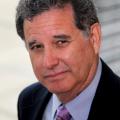This article appears in the February 2018 issue of Sojourners magazine. To subscribe, click here .
THE EXPLOSION OF “fake news” creates a conundrum for Christians: How do Christians determine what news is fake and what news is true?
Knowing the difference matters. It affects how Christians perceive the world. It helps them decide the impact news will have in their faith walk. It addresses their freedom to act upon what they believe is true.
Some, in the public at large, already believe they know what’s fake and what’s not. One national poll, for example, found that 46 percent of those contacted believe that major news organizations “fabricate stories” about the president and his administration. Another 37 percent didn’t; 17 didn’t know.
Why would such a high percentage of people think that news is made up when it involves the president? One reason: They don’t believe any news that contradicts their view of the president. And why would the president label certain news fake? He doesn’t agree with it, or believes his view is the only true one.
But what do people usually mean by “fake” vs. “true” news? Some believe that “fake news” looks like “true news,” but it aims to deceive. For others, fake news represents anything that doesn’t support what they already believe.
As C.S. Lewis wrote, “What you see and hear depends a good deal on where you are standing; it also depends on what sort of person you are.” Where people stand today has created a divide when it comes to the veracity of the news media. That signifies an alarming development. The stakes for news consumers rise higher with each passing day. To some, it seems like there’s a plethora of news and a scarcity of truth. It becomes a cacophony, noise without context.
But fake news isn’t new. If we want to use the story of the garden of Eden as one early example, the serpent offered his version of fake news. The serpent told the woman that if she ate the fruit of the tree, “You will not die” (Genesis 3:4). Fake news has been with us ever since.
What is new today involves the combination of sophisticated technology, pinpoint distribution of narrowcast information, and a divided society that seeks to imbibe only what fits its own bias. Fake news taps into that.
So what’s a Christian to do? Christians must put the news to the test. Here are some questions to help determine if a news source seeks truth and operates in an ethical fashion:
• What’s the source of the news?
• Does the news source have a history of accuracy and accountability?
• Does the news organization provide credible and verifiable information?
• Does the story cite multiple and varied sources?
• Does the story quote identifiable sources? If anonymous, do they seem credible?
• How does the news distributed by one news organization compare to other news sources—similar and different?
• Does the news provider seem to seek a fuller version of truth you can trust?
As news consumers, we must try to verify that the news we follow is accurate and true. We need to understand biases. We must search for context.
When Jesus spoke to those who came to hear him teach on the Mount of Olives, he said: “If you continue in my word, you are truly my disciples; and you will know the truth, and the truth will make you free” (John 8:31-32).
The kind of person we are determines what we believe, and how we live. News is important because it shapes our perceptions of society. Deception incarcerates us. Truth sets us free.

Got something to say about what you're reading? We value your feedback!

